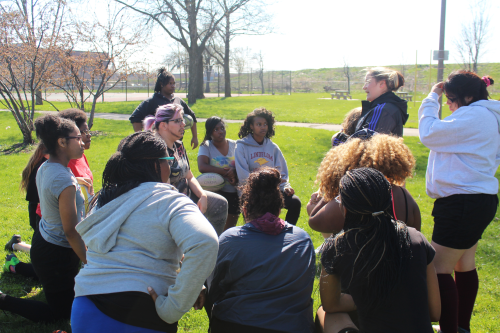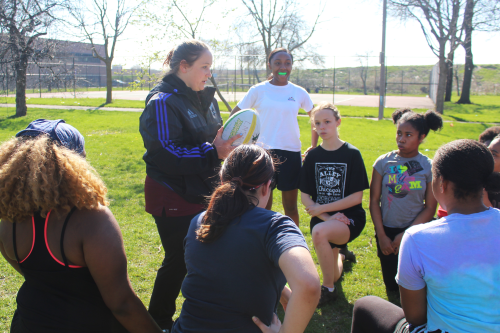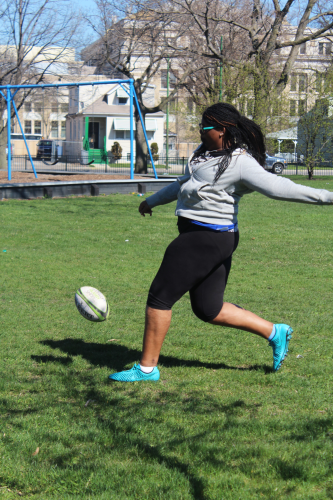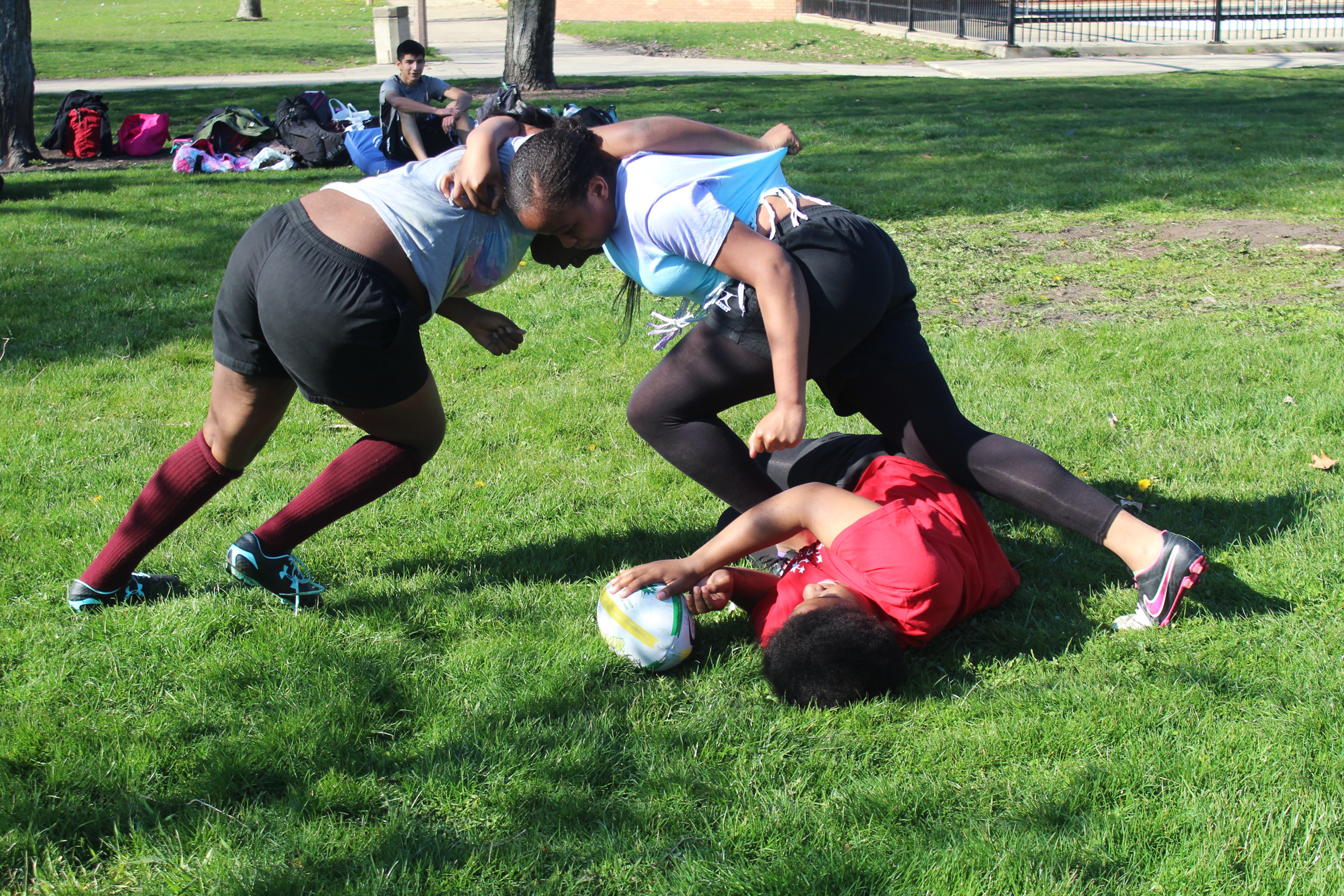Three days a week, twenty-two girls from Lindblom Math and Science Academy, a West Englewood selective enrollment high school, put in mouth guards, play catch, and then practice knocking each other down. They do so on the grass by the playground—“watch out for glass,” they are told over and over—because the baseball and soccer teams use the nicer turf of the fields next door. Still, their enthusiasm is unbridled. They are the members of Lindblom’s new girls’ rugby team—currently in its inaugural season—its self-appointed “founding mothers.”
Coach Jessica Rogawski, who teaches art and yoga at Lindblom, started the team after years of playing rugby herself because she wanted to provide an outlet for young girls to play an aggressive sport, one that requires significant contact and endurance. “It’s been kind of a dream come true to get this team started,” she said. “A lot of times people don’t think girls will come out to contact sports but girls will come out in droves for contact sports if you give them the opportunities. They have just as much aggression as guys do, and are just as tough.”
Right now the team is only considered a club by the high school, meaning it lacks the funding and insurance coverage that recognized sports teams receive. Rogawski had to look to the school for funding for their jerseys—“Which, with the CPS [Chicago Public Schools] budget crisis has been a trip and a half,” she explained. They received the funding and the girls are continuing to raise money for the team through a GoFundMe account, aiming to raise $3,000 for transportation and insurance costs.
As far as aggressive sports go, equipment needs for rugby are light: the sport requires only mouth guards, special thick shorts, socks, and cleats. “Rugby’s actually safer than football because of the fact that we have no padding,” said team member April Cruz, a junior at Lindblom. “As long as you stick with the fundamentals and learn how to fall, there’s no reason you should get hurt.”

As the only high school girls’ rugby team on the South Side and one of only three in the city, the girls will play mostly suburban schools. In their first “friendly” match, which does not count toward the regular season standings, they played the state champions. “They lost, but they were so enthusiastic,” Rogawski recalled. “They were all out there screaming for each other.”
Practice started in February, though Rogawski encouraged the girls to join the boys’ wrestling team during the winter, which she also coaches, to get a feel for aggressive sports. For some of the girls with no aggressive sport experience, the transition to rugby was particularly challenging. “I played with Barbie dolls my whole life,” freshman Destiny Elmore explained. “My bedroom was pink and I am the epitome of a girly-girl. My strength has surprised me.” Her teammates confirmed that she is up for the challenge: “She tackles beautifully,” said junior Alexa Barnes.
This kind of support is typical for the girls, many of whom refer to the group as a family. They praise each other’s passes, promise each other they’re ready for upcoming games, and joke “That’s sexy!” when taking out their mouth guards. “People playing the scariest sports tend to be nicer,” observed junior Grace Law. “We’re really close. To be able to get next to someone’s butt and then kick it around, you have to have a bond with that person; you really have to know them.” Junior Chandler Bell agreed. “Before I started rugby, I was a cool person but I didn’t really interact with people. I wasn’t like a body-contact person and that really changed.”

The girls unanimously agree that the tackles are their favorite part, not only as a bonding activity and release of aggression, but also as a chance to prove themselves as female athletes. “For female sports, the ideal tends to be ‘see it to believe it,’ so until people saw us practice, no one really thought we could take people as easily as we do,” said Cruz. They appreciate that any girl can do so. Captain Symone Cirton, a junior, explains: “I like that anybody can play. My friend said she didn’t have the body to join, and I was like there is no one body. The pack are the bigger stronger girls, and the back are the smaller girls who can run fast, and both are essential.”

After practice on the first warm day in April, Rogawski assigned homework: go home and draft a list of what makes a good captain, manager, team member, and coach. They plan to compile the responses as a code of conduct over spring break. If a typical practice is any indication, this assignment will not be difficult. The girls contend with the team-membership question every time they play together, and they know the answer to the coach question as well: as they leave practice and trickle down 61st Street, a few at a time, Cruz turns and gestures toward Rogawski. “Best coach ever,” she yells, and her teammates concur.

